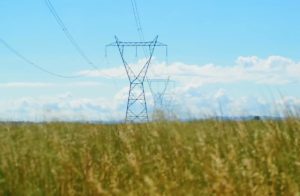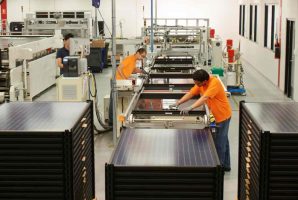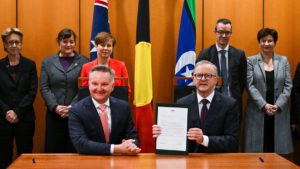The Australian Greens are seeking a ban on the construction of new coal mines in Australia, with the federal Senate debating proposed legislation that would prohibit new mines being established in Queensland’s Galilee Basin.
Legislation has been tabled by Queensland Senator Larissa Waters, which would effectively target Adani’s Carmichael coal mine, which had its approvals rubber-stamped by the federal government and the Queensland state government last year following the re-election of the pro-coal Morrison government.
Following the approval of the Adani coal mine, a long list of additional mines have been proposed for the Galilee Basin, including the mammoth Galilee coal project proposed by Clive Palmer, which could be up to four times the size of the Adani mine.
The long line of projects has prompted the Galilee basin to be described as a “carbon bomb”, that would undermine efforts to limit global warming to no more than 2 degrees above pre-industrial temperatures.
“The Galilee Basin is a carbon bomb and in reality the science demands we don’t open up a single new coal mine,” Waters said during the debate of the Greens bill.
“We need to keep that Galilee coal in the ground and today I have a bill that will do just that.
“If the Galilee Basin were to be mined and it was a country, it would be the seventh-largest greenhouse gas emitter in the world.”
The Adani Carmichael mine became one of the defining issues of the 2019 federal election, with the Morrison government enthusiastically backing the project, while the federal Labor party struggled to articulate a clear position on the project.
Senator Waters cited the significant volume of donations from fossil fuel companies that were channelled into the election campaigns of both of the major parties, including $89 million spent by Clive Palmer to facilitate the re-election of the Morrison government, as a justification for a legislated ban on future coal developments.
“Big coal is very generous in their donations to both the old parties, holding back action on climate change and renewable energy in this country for years,” Waters said.
“We must transition out of dirty polluting fossil fuels and towards the clean, jobs-generating export market future of renewable energy.”
The bill was reviewed by the Environment and Communication Legislation Committee, which recommended against the passage of the coal mine ban, reflecting the membership of the committee, half of whose members were Liberal and Nationals senators.
“A move towards banning thermal coal mining would create regulatory uncertainty and a significant sovereign risk for Australia’s economy well into the future, by making foreign investors more reluctant to support Australian projects. Further, the committee is concerned that the bill presents a constitutional risk,” the committee report said.
“Namely, that the bill would lead to the expropriation, without just compensation, of property rights held by those currently developing the Galilee Basin. This could potentially leave the Australian government liable for substitutional compensation payments, and in the view of the Committee, this is an unacceptable risk.”
In additional comments, Labor senators said that they would not support the bill, citing the existing approvals granted to the Adani project, which should be respected, and the potential Constitutional issues their revocation could raise.
Labor leader Anthony Albanese has expressed mixed thoughts on the future of Australia’s coal industry.
Albanese compared the prospect of a new coal-fired power station to a “unicorn”, saying that Labor did not support the use of taxpayer funds to pay for the completion of feasibility studies into a new coal-fired power station.
“What Labor wants to see is investment in clean energy. I do not think there is a place for new coal-fired power plants in Australia. Full stop,” Albanese said.
However, answering questions about Labor’s recommitment to a zero net emissions target, Albanese said that he expected that Australia would still be exporting coal in 2050.
“Metallurgical coal, at the moment we don’t have a replacement, there’s research going on into hydrogen,” Albanese told ABC Insiders.
“The honest thing is, on the one hand, you have a government that says we can pretend it is all business-as-usual. On the other hand, you have some in the Greens Party saying – we can just end it tomorrow,” Albanese added.
Albanese went on to argue that Australia continuing to export coal could be consistent with the achievement of a net zero emissions target.
“You don’t measure the emissions where the original product comes from. I mean, Japan isn’t responsible for the emissions of every vehicle that’s built in Japan,” Albanese said. “But the truth is that, just as in Australia, renewables are becoming cheaper, just as new forms of energy, like renewable hydrogen are a way of the future, we can be an energy-exporting superpower.”










